“Now I’m Where I’m Supposed to Be”
When Ernest McFadden returned home to Compton after completing his military service in 1973, the Army Veteran was advised not to wear his uniform in public again. At the time, Vietnam was seen by many as the first war America lost. And for that, people’s ire was directed at Veterans.
But that didn’t discourage Ernest, who set his sights on continuing his public service. He found his opportunity through his local community.
“I worked in outreach with the area’s homeless and spoke with local gang members to try to prevent gang violence,” he said. “With my training and personal experiences in the military, I was able to engage, validate and motivate them to get help and access city services.”
It was just the opening he needed to adjust back to civilian life.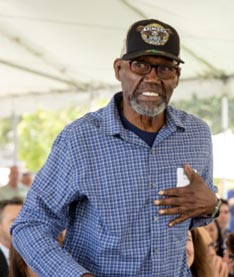
There were ups and downs in the years that followed—deaths in his family, the birth of a daughter, and then a life-changing confrontation with addiction. The services he’d previously helped people connect with in his community were now the very same services he would rely on for his own survival.
A working homeless man
Ernest worked hard to regain his sobriety and out of that experience, he accumulated multiple credentials—training and certifications for recovery and chemical dependency specialist, substance abuse counselor, peer mentor and paralegal, among others.
Things were looking up. Ernest was working as an outreach specialist with New Directions for Veterans, and he qualified for a HUD-VASH voucher to help with rent. But then when he accepted a better-paying job with the VA hospital in Long Beach, he no longer qualified for assistance. Without it, he couldn’t afford housing, forcing him to live in his car.
Initially, Ernest shared the streets with a friend who was living in his car, too. They parked next to each other for safety and watched out for one another. As best they could.
“One day while I was at work, my friend was attacked by a group while he sat in his car,” he said.
His friend’s injuries sent him to the hospital, where he was diagnosed with advanced prostate cancer, exacerbating his situation. Once he was out of the hospital, his friend moved to Texas to be with family.
No records. No housing. No way out
When Ernest was in basic training, he had contracted a nearly fatal case of hepatitis C, which still affects him today. While working at the Long Beach VA, he was on disability while he recovered from surgery for a double hernia. He was in the system and able to receive VA services.
And then, he wasn’t.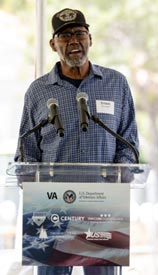
He was told the VA could no longer locate his records. His eligibility for services was cancelled.
“It felt like overnight I had no housing, no medical care, and no way to use any other Veteran services. I took my case to military court and won. But then I soon found out that what works in military court doesn’t necessarily work in civilian court,” he said.
Home sweet home
Through the Joining Forces Initiative, a program founded by Former First Lady Michelle Obama and current First Lady Jill Biden, Ernest’s VA records were found again, and his access to services restored. He was also a candidate for expanded healthcare services and case management through the Care, Treatment and Rehabilitative Services Initiative that operates in a designated tented area on the West LA VA campus. The pilot program also guides Veterans to permanent housing and helped Ernest find his new forever home in 207.
Even at 70 years old, Ernest says he hasn’t finished his service yet. He is interested in helping Veterans navigate the complicated systems of benefits. Something he knows a little bit about.
“I’m now where I’m supposed to be,” he says.
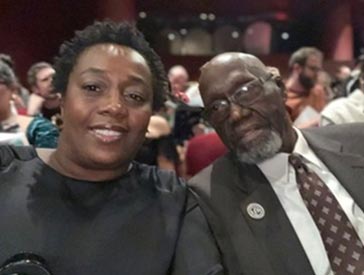
Ernest McFadden with his daughter Kamila Charles
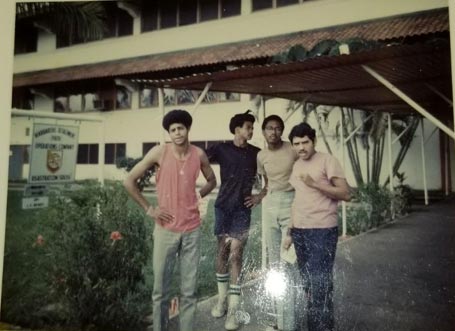
Ernest in his early service days
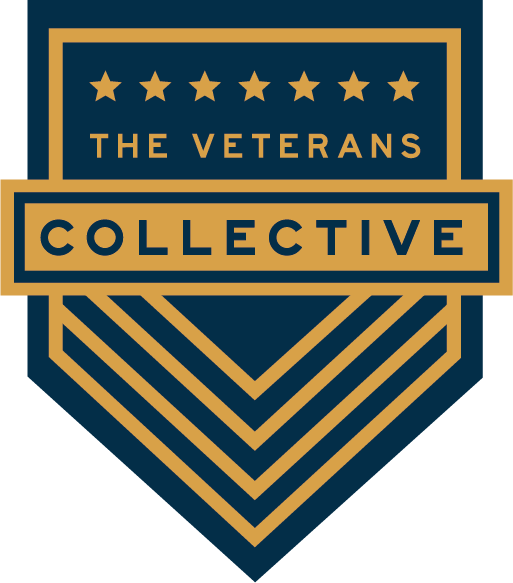
Follow Us